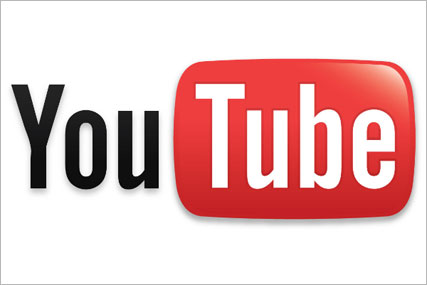The Google-owned site is reported to be investing around $100m in the venture, and will be adding 25 hours of fresh material a day.
As a media channel, YouTube commands formidable reach in the UK, with some 25 million people watching its content on a monthly basis. This latest move is a significant development in Google's transformation into a fully fledged entertainment company.
YouTube says "there has already been strong advertiser interest" for the service, but what this means for advertisers is that they will have more opportunities to target specific audiences through ads, sponsorship and good old product placement.
"YouTube will increasingly talk about audiences in a similar way to TV, with added intelligence potentially giving it 'The X Factor'," says Ben Ayers, head of social media at Carat. "The key will be how successful channels are at carving out their own identity in a cluttered market. An understanding of content and how people share and distribute it will be vital."
Much in the way that Facebook pages exploded for brands a couple of years ago, there is likely to be much more emphasis on branded YouTube channels. Achieving cut-through is therefore likely to require serious investment, creativity and smart planning.
Julian Ireland, head of planning and strategy at the7stars, says the venture gives brands a chance to make the most of integrated social functionality. "Advertisers can also tap into the wealth of data that YouTube has on its users for precision targeting and retargeting purposes, to keep talking to their customers elsewhere on the web," he adds.
An increasing number of younger people are using YouTube, rather than the TV, to access entertainment, and the time they spend on the site, and others such as Dailymotion, is growing all the time. This gives brands a huge opportunity to create content that is seen widely, but without the ball and chain of linear schedules.
The main challenge for advertisers is likely to be a creative one, making sure that messages work in the context of YouTube. It is important, too, for brands to remember that this is not just about reach, but also engagement.
Inevitably, there will be issues around measurability, but, says Ireland, in many ways the numbers are more transparent than their TV counterparts. "It is easy to measure unique views and the numbers can be huge," he says. "The crux of this is attracting quality content that is exclusive to YouTube."
No doubt YouTube will go head-to-head in bidding wars with established broadcasters for the rights to first showings. "Things will get interesting when it encroaches on areas like live sports rights and 'shiny floor' TV shows," adds Ayers.
Smart thinking YouTube
- YouTube is redoubling efforts in professional content
- Brands will have to invest to achieve cut-through
- YouTube is likely to challenge broadcasters for sports rights
Second opinion: Dean Browell, executive vice-president, Feedback
Marketers must be careful to interpret YouTube's push for more professional content correctly and pay special attention to the exclusive nature of the arrangements. This move is more of a direct challenge to broadcast TV than it is to the existing culture of online videos and viral content.
One could easily argue these "channels" already philosophically exist on YouTube from a range of content providers, but they now have a chance to feature in a highly focused and marketed atmosphere.
What this means for UK advertisers is a broadcast-like channel selection for ads within video channels. And while YouTube is billing this as "professional" content, that doesn't mean a shift away from authentic content such as testimonials – no matter how many agencies may want to use this announcement to secure giant production budgets for videos.
Above all, it would be naive to forget the single most important YouTube fact – Google owns YouTube. Google does not own Hulu, iTunes, BBC's iPlayer or Vimeo.
What Google is doing with this announcement is securing more original content that will be highly indexed on its search engine and not available anywhere else. This announcement only solidifies the importance of using YouTube for video.


